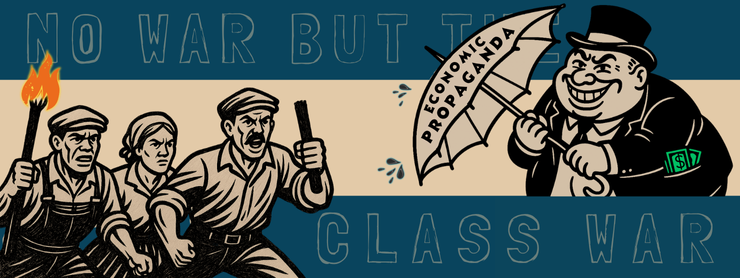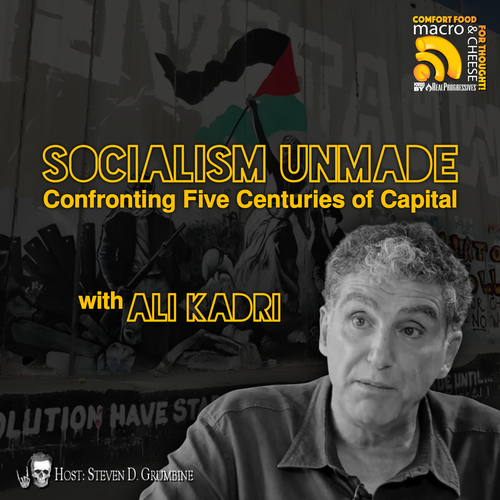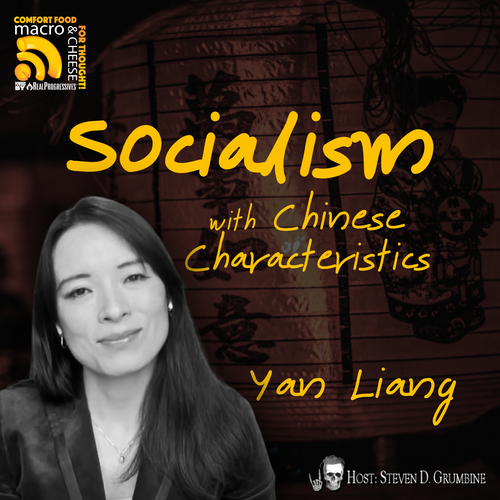The ruling class has weaponized economic illiteracy as a tool of social control. Workers wake up every day to a barrage of lies that Social Security is going bankrupt (Kelton 2020), that national debt will crush our grandchildren (Mitchell 2019), that we must accept crumbling infrastructure and climate collapse because “there’s no money.” These myths persist because the capitalist state actively obscures a simple truth that Modern Monetary Theory (MMT) makes clear: currency-issuing governments like the United States create money by spending it into existence (Wray 2015). Taxes don’t fund federal spending; they regulate demand and redistribute wealth (Mosler 2010). The entire framework of “how will we pay for it?” is a carefully constructed illusion meant to keep the working class fighting over scraps while the rich loot the planet (Hudson 2021).
We see this deception play out most brutally in the climate crisis. As wildfires incinerate towns and floods drown cities (IPCC 2023), politicians from both corporate parties wring their hands about “fiscal responsibility.” They claim we can’t afford a Green New Deal while rubber-stamping bank bailouts and trillion-dollar Pentagon budgets (National Priorities Project 2023) without hesitation. The reality, as MMT economist Stephanie Kelton demonstrates in The Deficit Myth, is that the only real constraints are physical resources and labor capacity, not money. When the COVID pandemic hit, Congress created $5 trillion overnight (FRED 2021). When Wall Street crashed in 2008, the Federal Reserve conjured $29 trillion in bailouts (GAO 2011). But when workers demand a livable planet? Suddenly the “money printers” break.
This manufactured scarcity serves capital’s class interests. Fossil fuel corporations rake in $4 trillion annually in subsidies (IMF 2023) while blocking climate action through their captured politicians (Mayer 2016). Private equity vampires buy up housing and healthcare systems to extract rents from basic human needs (Sokol 2023). The entire austerity project, as historian Clara Mattei exposes in The Capital Order (2022), was never about economic necessity but about disciplining labor and maintaining capitalist power after the revolutionary wave of the early 20th century. Today’s inflation panic follows the same script using price hikes (often caused by corporate profiteering) as an excuse to crush wages and dismantle social programs (Weber 2022).
The working class cannot vote or lobby its way out of this trap. The Princeton oligarchy study (Gilens and Page 2014) proved what we already know the US government responds to wealthy donors, not voters. When Bernie Sanders’ 2020 campaign promised a Green New Deal, the political establishment smothered it in procedural roadblocks. When Biden took office, he approved more oil drilling than Trump (E&E News 2023) while abandoning his climate corps promise. This isn’t betrayal, it’s the system functioning as designed. As Marxist theorist Nicos Poulantzas (1978) observed, the capitalist state exists to manage the long-term interests of the ruling class, regardless of which party holds office.
Our only path forward is building working-class power outside the official channels that have failed us. The UAW’s 2023 victory (Bureau of Labor Statistics 2023) showed that militant unions can force concessions, but we need to go further organizing general strikes that halt profit extraction entirely. Community land trusts (DeFilippis 2012) and public utilities like Maine’s Pine Tree Power initiative (Maine Beacon 2023) demonstrate how we can reclaim control of essential resources from corporate predators. When Minneapolis tenants passed rent control against landlord opposition (MinnPost 2021), or when Puerto Rican communities restored solar power after Hurricane Maria while the privatized utility collapsed (Sanzillo 2018), they proved that real change comes from below, not from begging politicians.
Time is running out. The billionaire class would rather burn the planet than surrender their power to create artificial scarcity through monetary myths (Klein 2019). As Marxist economist Samir Amin (2013) warned, there are no peaceful transitions. Only organized working-class power can dismantle the capital order fast enough to prevent climate catastrophe. The tools for our survival exist. The Federal Government can fund a full green transition tomorrow, just as it bailed out the banks. What’s missing isn’t money, but the political will forged through mass struggle. Either we tear down the monetary veil and seize our collective future, or we perish under the weight of capitalist lies. The choice is ours to make, but the pathway to exercise that agency will not be through the normal state approved channels. No, the unfortunate juxtaposition we find ourselves in breaks down at the level of democracy, which these revelations lead us to a pandoras box of pretend democracy and electoral fantasies that serve as an invisible prison to progress. Time is indeed short.
To be continued…
References:
Amin, S. (2013). The Implosion of Contemporary Capitalism
DeFilippis, J. (2012). The Community Land Trust Reader
FRED (2021). COVID-19 Stimulus Spending Data
GAO (2011). Federal Reserve Emergency Lending
Gilens, M. & Page, B. (2014). Testing Theories of American Politics
Hudson, M. (2021). The Destiny of Civilization
IPCC (2023). Climate Change Synthesis Report
Kelton, S. (2020). The Deficit Myth
Klein, N. (2019). On Fire: The Burning Case for a Green New Deal
Mattei, C. (2022). The Capital Order
Mitchell, Wray, Watts (2019). Macroeconomics
Mosler, W. (2010). Seven Deadly Innocent Frauds
Poulantzas, N. (1978). State, Power, Socialism
Wray, L.R. (2015). Modern Money Theory, MMP Blog Archive
Weber, I. (2022). Sellers’ Inflation, Profits and Conflict










1 thought on “How the Elites Weaponize the Economic Illiteracy of the Working Class”